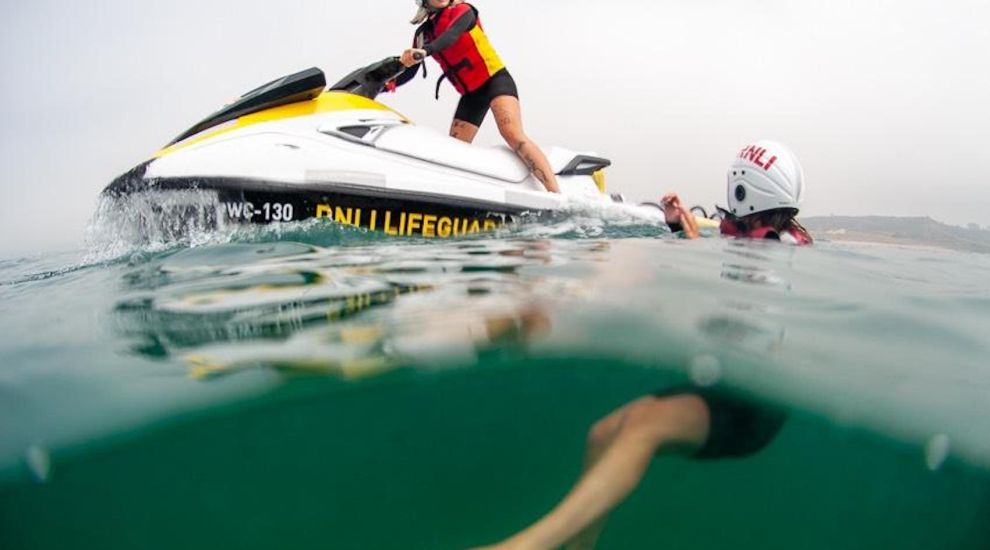


Lifeguards are due to patrol St Ouen’s Bay over the half-term holidays to help protect the increasing number of people using the beach in colder months.
Islanders heading to the coast are also being advised to head to a lifeguarded beach and to check weather and tide conditions before they set off.
From Saturday 26 October to Sunday 3 November, RNLI lifeguards will be on duty at Le Braye beach from 10:00 to 17:00.
The patrols aim to protect beach users during a time when sea conditions can be more challenging, with bigger swells and spring tides expected due to autumn storms.
RNLI Lead Lifeguard Supervisor for Jersey, Aaron White said: “Half-term will likely see more people heading to the coast so we’d like to remind people that if you are wishing to visit a beach, head to Le Braye where lifeguards will be on duty.
“Remember to swim and bodyboard between the red and yellow flags, and if you’re unsure about anything to ask an RNLI lifeguard. “
“If you do find yourself in trouble in the water, remember the RNLI’s advice to not panic and 'Float to Live'.
“Lie flat on your back with your arms outstretched, lean back with your ears submerged and allow your body to adapt to the water.”
The charity said anyone visiting the coast should make sure they keep themselves and their families safe by following beach safety advice found online here.
Learn how you can keep you and your loved ones safe at the coast and in the water with advice from the RNLI’s water safety experts...
With more islanders taking up cold water sea swimming, local swim coach and first aider Nicky Holgate-Smith shared her top tips on how to stay safe in the water during the colder months earlier this year...
Cold shock:
Swim failure:
Hypothermia:
Comments
Comments on this story express the views of the commentator only, not Bailiwick Publishing. We are unable to guarantee the accuracy of any of those comments.